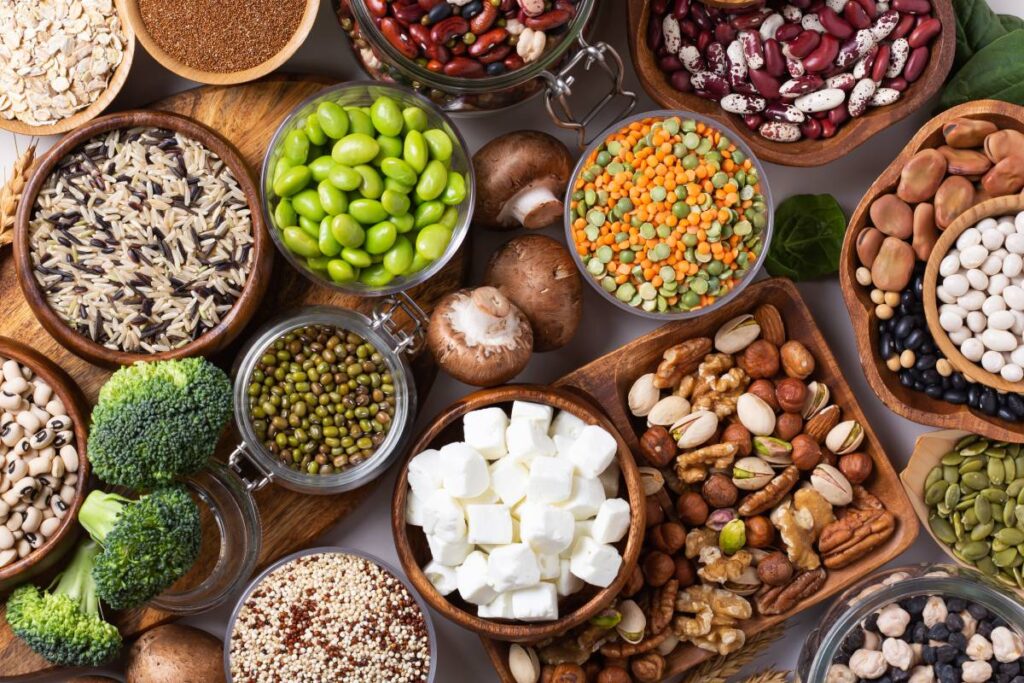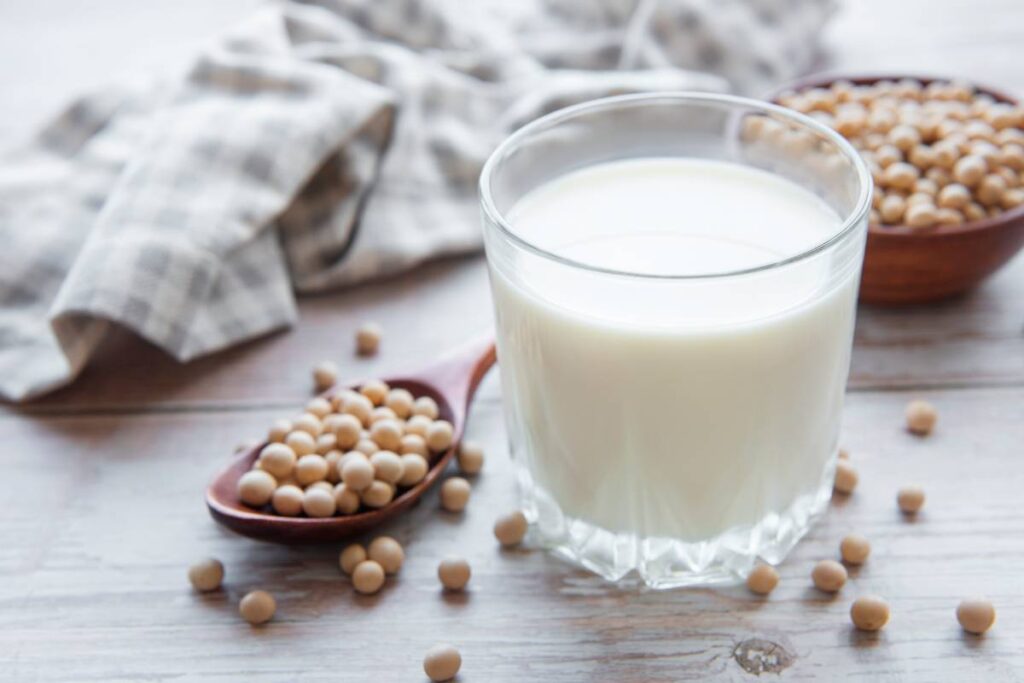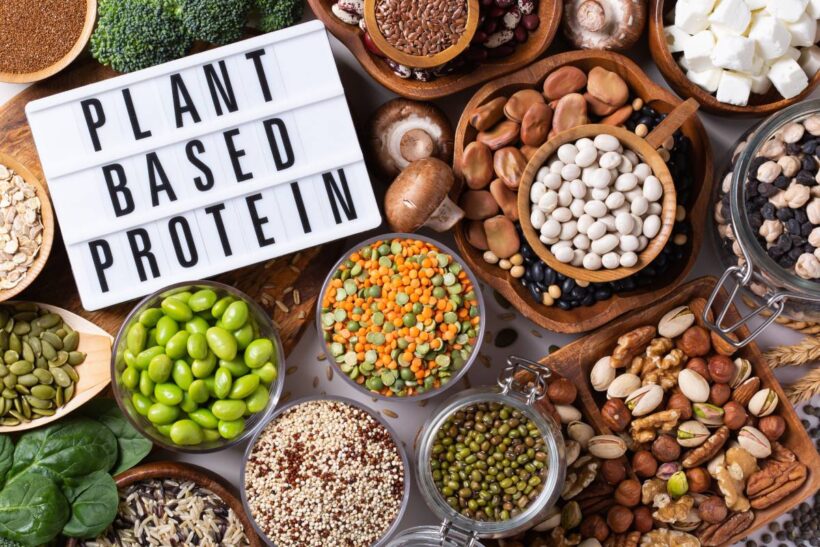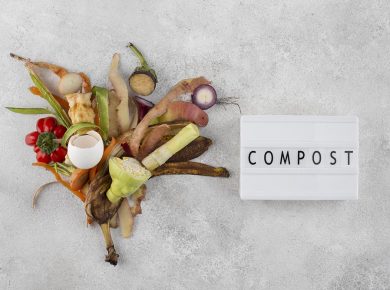In the world of nutrition, figuring out the best protein sources can be a bit like solving a puzzle. We often hear about vegan vs. meat protein and the abundance of plant-based options, but what’s the real deal?
Today, we’re going to break it down—starting with vegan protein, checking out how it compares to meat, and exploring the coolest plant-based protein choices. Think of it as your guide to making tasty and healthy choices for your meals.
So, let’s dive in and make sense of the protein puzzle!
You might also like: Outdoor wedding ideas: What’s the best month? Where are the best venues? What is the best food to serve? How do you protect your wedding cake outdoors?
What is vegan protein made of?
Vegan protein is derived from plant-based sources, offering a sustainable and cruelty-free alternative to animal-based protein. Unlike traditional protein sources like meat, eggs, and dairy, vegan protein comes from plants, making it an excellent choice for those who follow a plant-based or vegan lifestyle.
Let’s explore the diverse world of vegan protein and discover the variety of plant sources that contribute to its creation.
One of the primary sources of vegan protein is legumes, which include beans, lentils, and peas. These humble plants are not only rich in protein but also packed with fibre, vitamins, and minerals. Chickpeas, for example, are a versatile legume that can be transformed into various dishes like hummus or added to salads for an extra protein boost.

Quinoa is another star in the realm of vegan protein. Often mistaken for a grain, quinoa is actually a seed that contains all nine essential amino acids, making it a complete protein source. This South American superfood is not only nutritious but also a great option for those with gluten sensitivities.
Nuts and seeds are also excellent sources of vegan protein. Almonds, chia seeds, hemp seeds, and pumpkin seeds are rich in both protein and healthy fats. These can be sprinkled on top of yoghurt, added to smoothies, or incorporated into energy bars for a tasty and nutritious snack.
Tofu and tempeh, both made from soybeans, are popular plant-based protein options. Tofu, with its subtle flavour and versatile texture, can be used in savoury and sweet dishes alike. Tempeh, a fermented soy product, has a nutty taste and a firm texture, making it a favourite among those looking for a meaty substitute.
Seitan, often called wheat meat, is a high-protein option made from gluten, the protein found in wheat. When cooked, seitan has a chewy texture similar to meat, making it a favourite among those craving a hearty and satisfying meal.
For those who love greenery, leafy greens like spinach, kale, and broccoli are surprisingly good sources of protein. While not as protein-dense as some other options, these vegetables can contribute significantly to your daily protein intake when consumed in larger quantities.
Vegan protein powders, made from sources like peas, brown rice, or hemp, have become increasingly popular. These powders are convenient for adding protein to smoothies or recipes, providing a quick and easy way to meet your protein needs.
Is vegan protein as good as meat protein?
The debate between vegan protein and meat protein has sparked considerable interest, with people often wondering if one is superior to the other. The truth is, both types of proteins can offer essential nutrients, but they come with their own set of characteristics and considerations. Let’s break it down in a way that’s easy to understand.
Firstly, it’s important to note that both vegan and meat proteins provide the body with the essential amino acids it needs to function properly. Amino acids are the building blocks of proteins, and there are nine that the body cannot produce on its own, known as essential amino acids. Meat is considered a complete protein source because it contains all nine of these essential amino acids in the right proportions. On the other hand, some plant-based sources may lack one or more of these amino acids.

However, with proper planning, a vegan diet can easily meet the body’s protein needs. By combining different plant-based sources, such as beans and rice or lentils and quinoa, individuals can ensure they get all the essential amino acids. This is known as complementary protein pairing, and it allows vegans to enjoy a well-rounded protein intake.
In terms of nutritional content, both vegan and meat proteins come with their unique benefits. Meat, especially lean cuts, is a rich source of easily absorbable iron, zinc, and B vitamins like B12. These nutrients play crucial roles in energy metabolism, immune function, and overall well-being. On the flip side, plant-based proteins bring along a variety of other essential nutrients, including fibre, antioxidants, and phytochemicals, which contribute to heart health and disease prevention.
One aspect where vegan protein takes the lead is its lower saturated fat content. Many plant-based protein sources are naturally low in saturated fat, making them heart-friendly choices. This is in contrast to some animal-based proteins, which can be higher in saturated fats that, when consumed excessively, may contribute to cardiovascular issues.
Moreover, opting for vegan protein can align with environmental and ethical considerations. Producing plant-based proteins generally has a lower environmental impact, requiring less land, water, and energy compared to raising animals for meat. Additionally, choosing vegan protein supports animal welfare, as it avoids the ethical concerns associated with factory farming and animal exploitation.
Digestibility is another factor to consider. Some individuals find that plant-based proteins are easier to digest, leading to reduced bloating or digestive discomfort. This can be particularly beneficial for people with certain digestive conditions or sensitivities.

What is the best plant-based protein?
When it comes to plant-based protein, the options are abundant, providing a diverse and delicious array of choices. Whether you’re a seasoned vegan, a flexitarian, or simply looking to incorporate more plant-based goodness into your diet, understanding the best sources of plant-based protein can be a game-changer for your health. Let’s explore some stellar contenders in the plant-based protein arena that are not only nutritious but also easy to incorporate into your meals.
- Lentils: These tiny legumes pack a powerful protein punch. Lentils are not only rich in protein but also high in fibre, making them a fantastic choice for promoting digestive health. They come in various colours and can be easily added to soups, stews, salads, or even as a meat substitute in dishes like lentil burgers.
- Quinoa: Often hailed as a superfood, quinoa is a complete protein source, meaning it contains all nine essential amino acids. This ancient grain (although technically a seed) is incredibly versatile, offering a nutty flavour and a satisfying crunch. Use it as a base for salads, as a side dish, or in place of rice for a protein-packed meal.
- Chickpeas: Whether you enjoy them whole or as the base of hummus, chickpeas are a plant-based protein powerhouse. They are not only versatile but also high in fibre and provide a substantial amount of vitamins and minerals. Roasted chickpeas make for a tasty snack, while chickpea curry is a comforting and protein-rich meal.
- Tofu and Tempeh: Both derived from soybeans, tofu and tempeh are popular plant-based protein options. Tofu’s neutral taste makes it adaptable to various dishes, taking on the flavours of the ingredients it’s cooked with. Tempeh, with its nutty flavour and firm texture, is a fantastic meat substitute and can be sliced, diced, or crumbled into recipes.
- Nuts and Seeds: Almonds, peanuts, chia seeds, hemp seeds, and pumpkin seeds are not only delicious but also excellent sources of plant-based protein. They can be sprinkled on top of yoghurt, blended into smoothies, or enjoyed as a snack. Nut butters, such as almond or peanut butter, are convenient and tasty ways to incorporate these protein-rich foods into your diet.
- Seitan: Also known as wheat gluten, seitan is a high-protein option for those looking for a meaty texture in their plant-based dishes. It’s made by washing wheat flour dough with water, removing the starch and leaving behind the gluten. When cooked, seitan has a chewy and hearty texture, making it a great meat substitute in various recipes.
- Edamame: Young soybeans, known as edamame, are not only a popular appetizer at Japanese restaurants but also a nutritious plant-based protein source. They can be enjoyed on their own, added to salads, or used in stir-fries for an extra protein boost.
- Plant-Based Protein Powders: For a convenient and quick protein fix, plant-based protein powders made from sources like peas, brown rice, or hemp protein are widely available. These powders can be added to smoothies, oatmeal, or recipes to increase their protein content.
Ultimately, the best plant-based protein is the one that aligns with your taste preferences, dietary needs, and lifestyle. Incorporating a variety of these plant-based protein sources into your meals ensures that you receive a well-rounded and complete array of essential amino acids and nutrients.
So, whether you’re crafting a colourful salad, whipping up a hearty stir-fry, or blending a nutrient-packed smoothie, the world of plant-based proteins is vast and ready to elevate your culinary adventures.










